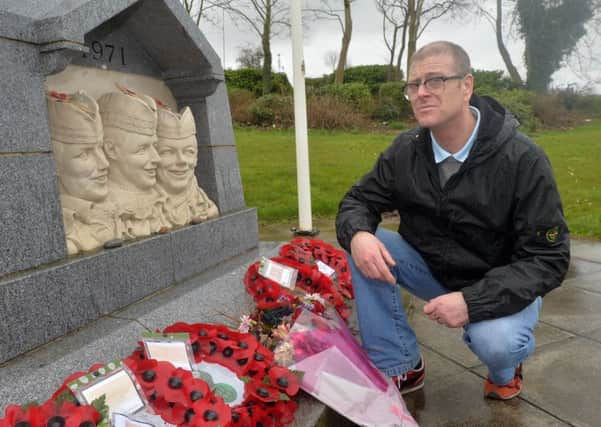Campaign for murdered Scottish '˜honey trap' soldiers


Brothers John McCaig, 17, and Joseph McCaig, 18, along with Dougald McCaughey, 23, of the Royal Highland Fusiliers were killed by the IRA on a remote road at Whitebrae on March 10, 1971.
They had been lured there by republican women from a city centre bar in what has become known as ‘the honey-trap killings’.
Nobody has ever been convicted of the murders.
Advertisement
Hide AdAdvertisement
Hide AdA newly-formed committee on behalf of a group based in Scotland is now launching a campaign to have the Scottish government support funding for Police Scotland to investigate the case.
Spokesman Kris McGurk said the Historical Enquiries Team (HET) report on the killings found the Metropolitan Police took over the investigation from the RUC in the 1970s and that one suspect admitted his involvement.
David McCaughey, a cousin of Fusilier McCaughey, said that the HET report did not explain the reason for the London force’s involvement.
“The Met were on the verge of making arrests when the two chief suspects escaped from Crumlin Road jail,” said Mr McCaughey.
Advertisement
Hide AdAdvertisement
Hide Ad“The governor was warned in advance but did not take the threat seriously.”
The report did not name suspects, he said.
However, he believes two of them were Martin Meehan, who died in 2007, and Patrick McAdorey, who was shot dead in 1971.
“A third suspect who did not pull the trigger confessed his part in the killings, according to the HET report,” he added.
“The Met had amassed quite a bit of evidence on two suspects.
Advertisement
Hide AdAdvertisement
Hide Ad“Just as they went to arrest them they escaped from jail and went on the run in the Republic of Ireland.”
He has concerns as to whether any of the suspects may have had some form of state protection.
Mr McGurk paid tribute to the quality of the HET report, which he said “makes it job easy for Police Scotland to build their investigation”.
He said: “Our motives are purely that because three Scottish boys were killed, we believe that Police Scotland should handle the inquiry.”
Their campaign also aims to create a permanent memorial to the three soldiers in their native Scotland.
An existing one at the site of their murders is frequently the site of republican attacks.